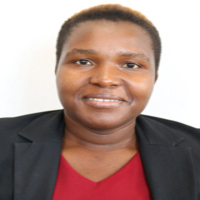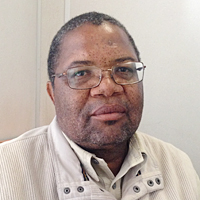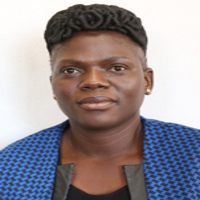Department of Operations Research and Statistics

Dr Precious Mdlongwa: Chairperson
Expected Benefits of using Operations Research:
- Increased Revenue
- Increased Market Share
- Reduction in Costs
- Greater utilisation from limited equipment, facilities, money and personnel
- Manage and reduce risk
- Improve quality
- Increased speed and throughput
- Provide a better basis for forecasting and planning
- Good governance practices
- Quantify and balance qualitative considerations
- Asses the likely outcomes of decision alternatives and uncover better alternatives
- Demonstrate feasibility and workability and assist with training
- Gain better control; achieve turn-around
The Department started operating independently in 2012. It had a staff complement of 9 Lecturers, 1 Teaching Assistant, 1 Senior Technician and 1 Senior Secretary. Four Degree Programmes were being offered and these are: BSc. Hons. Degree in Operations Research & Statistics, BSc. (Special Hons.) Degree in Operations Research & Statistics, MSc. in Operations Research and PhD in Operations Research & Statistics. Previously, these programmes were offered under the Department of Applied Mathematics.
Operations Research has wide applications in: Business, Industry, Boardroom and Executive Offices, Manufacturing and service operations, Finance and Control, Marketing Research and Forecasting, Agriculture, Health Systems, Information Systems and Statistical Data Analysis, Econometric modeling, Engineering, Research and Development, Government and Military Organisations, Complex Scheduling, Supply Chain Management, Logistics and Distribution Management, Telecommunications, Transportation, Public Sector.
Expected Benefits of using Operations Research:
- Increased Revenue
- Increased Market Share
- Reduction in Costs
- Greater utilisation from limited equipment, facilities, money and personnel
- Manage and reduce risk
- Improve quality
- Increased speed and throughput
- Provide a better basis for forecasting and planning
- Good governance practices
- Quantify and balance qualitative considerations
- Asses the likely outcomes of decision alternatives and uncover better alternatives
- Demonstrate feasibility and workability and assist with training
- Gain better control; achieve turn-around
The Department of Statistics & Operations Research (SORS) inaugurated in 2012, has a high international and multidisciplinary profile. The main topics of research are:
- Integer programming
- Networks
- Forecasting
- Impact modelling
- Non-Deterministic polynomial Hard problems
- Decision Analysis
- Statistical Modeling
- Computational Statistics
- Financial Econometrics
- Extreme Value Theory
- Discrete time Event and Continuous time Event Simulation Modelling
- Stochastic Modelling
- Derivatives
- Option Pricing
- Financial Risk Modeling/Analytics
- Multivariate Analysis
- Survival Data Analysis
- Reproductive Health Issues
For more details on these research topics contact the individual staff concerned.
The Department offers the following services:
- Training in statistical packages such as SPSS, STATA, EViews and R
- Statistical consultancy services
- Operations Research consultancy services
In the Community
The Department is engaged in the Community through the NUSTSEP programme
Our Degree Programmes
BSc. Hons. in Operations Research & Statistics
BSc. Hons. in Business Analytics
MSc. in Operations Research & Statistics
Departmental Staff

















